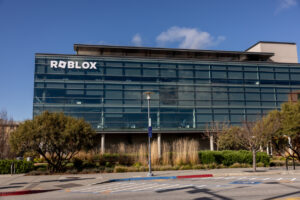Disney’s memo outlines grim future, Twitter’s content moderation cuts and more
Plus: Popular NYC restaurant responds to claims of racial discrimination.

Walt Disney Co. is looking at cutting costs, according to an internal memo to managers obtained by CNBC.
These could include layoffs, a ban on most company travel and a hiring freeze.
The move by CEO Bob Chapek came after the company reported slow fourth-quarter earnings and a $1.5 billion quarterly loss in its streaming business last week.
[FREE GUIDE: The Ultimate Corporate Communications Internal Email Broadcast Best Practices]
“I’m fully aware this will be a difficult process for many of you and your teams,” Chapek said in the internal note to management. “We are going to have to make tough and uncomfortable decisions.”
Company shares are reportedly down about 40% in 2022.
Why it matters: Disney’s message to managers also worked as a public statement for shareholders. Company executives were transparent about its financial needs and what steps needed to be taken to get the company in a better position in the future. Their comments left little room for misinterpretation.
New layoffs at Twitter to impact content moderation
The cuts are continuing at Twitter.
Content moderation and core infrastructure workers were among the company’s reported 4,400 layoffs of contract employees over the weekend, Platformer’s Casey Newton reported.
Update: company sources tell me that yesterday Twitter eliminated ~4,400 of its ~5,500 contract employees, with cuts expected to have significant impact to content moderation and the core infrastructure services that keep the site up and running.
People inside are stunned.
— Casey Newton (@CaseyNewton) November 13, 2022
Newton added that some contracted employees only realized they were laid off once they couldn’t log into their Slack and email programs. In addition, he reported managers weren’t notified of the layoffs.
The platform has faced widely reported financial issues, including Musk telling workers in an all-hands meeting Thursday that the company could face bankruptcy and needed to raise subscription revenue to offset falling advertising dollars to “survive the upcoming economic downturn.”
Musk also said over the weekend that the platform’s subscription service would make its return later this week after reports emerged Friday that Twitter Blue’s subscription service was being delayed while the company was addressing concerns over fake accounts.
Why it matters: The company has said it wanted to enhance content moderation to appease nervous advertisers, but it continues to cut content moderators. The contradiction keeps advertisers away from the site and isn’t helping the company’s image.
Did NYC restaurant go far enough in response to discrimination claims?
A romantic Brooklyn restaurant responded to a TikTok claim that the business discriminated against Asian people
Annie, who doesn’t have a last name on her TikTok account, shared a video that showed Asian couples all sitting in One if by Land, Two if by Sea’s low-lit second level, while other couples sat on the first floor with better lighting and furniture.
“Let’s cut to the chase: One if by Land, Two if by Sea racially discriminates against nonwhite people, particularly Asians,” Annie said in the video.
@rokug4n My review of a popular dinner restaurant in NYC – One if by Land Two if by Sea #greenscreen #nyc #nyceats #foodie #asian #nycrestaurants #nycdinner
Others shared similar experiences to Annie on the restaurant’s Yelp page, but a representative for the business said the allegations were untrue.
“One If By Land, Two If By Sea has been in business almost fifty years and we pride ourselves on our service to our customers, regardless of their color or nationality. I have worked at the restaurant for 30 years and the reason it has stayed so popular is because of the warmth each guest receives as they walk through the door,” Lisa Gardner, One if by Land, Two if by Sea’s director of special events, told the NY Post in a statement.
Why it matters: The restaurant could have gone further by listening to the concerns raised by Annie and other Yelp reviewers to review their approach to seating guests. It’s good for businesses to share that they are welcoming to Asian Americans. But other guests may not feel the same welcome. There may be no reason for One if by Land, Two if by Sea to change their policies, but not listening sends an unwelcome message to customers.
TikTok spreads unhealthy weight loss tips, study says
A new study says promotes “toxic” diet habits, according to a New York Post story.
In the PLOS One report, scientists looked at 1,000 videos using ten hashtags that emphasized fitness or nutrition.
Study author and University of Vermont Associate Professor Lizzy Pope said the videos glorified weight loss and food being key to achieving health and thinness.
“We didn’t see any expert voices in this conversation,” Pope said. “There are very few doctors or dietitians that were interacting in this content. So it was basically just all people that are taking their personal experience and sharing it with the world which can be valuable. But in nutrition, there’s so much bad information out there, that we have to be so careful.”
Researchers feared the weight-loss information would have a negative impact on TikTok’s younger audience.
“Each day, millions of teens and young adults are being fed content on TikTok that paints a very unrealistic and inaccurate picture of food, nutrition and health,” Pope said in the release.
Why it matters: Young people actively look to social media for health information. There’s ample opportunity for doctors, hospitals and legitimate healthcare experts to share useful weight-loss information in this space.
Chris Pugh is a staff writer for PR Daily. Follow him on Twitter and LinkedIn. Send story ideas to ChrisP@Ragan.com.
COMMENT
2 Responses to “Disney’s memo outlines grim future, Twitter’s content moderation cuts and more”
PR Daily News Feed
RECOMMENDED READING
Tags: content moderation, Disney, PR, public relations, Twitter








One way to save money at Disney is don’t eat there. Bring lunch from home. The way NOT to save money is to do what Twitter did, lay off people whose jobs were protective of customers and corporate reputation.
Musk laid off Twitter PR people. Then, when they were needed to reduce the effect of bad news, they weren’t there.
“How do we know,” top management may ask, “that PR people are bringing in more than they cost?” It’s a good question and Twitter’s experience is a good answer. You know the way you know the value of a fire department when a fire breaks out.
Even better you know because you can heed the advice of MBA schools: look ahead. Just as we know that fire is a risk we can prevent or control with good people and systems, so is bad news an often preventable and controllable peril , news that can destroy a huge chuck of a company’s asset value.
What can hold down the bad effect of bad news is the good protection of positive truths. That’s IF you have PR people in place to promptly make known the truth. This can include making truth known to management that helps management avert making a PR blunder.
Also having a great PR firm to back up the in-house team.
It was a PR blunder for Twitter to oust the information moderators who
protected Twitter advertisers now departed. It was a PR blunder to try saving money by cutting the Twitter PR staff that left instead of staying to protect management. Saving on lunch may have beneficial effects but “saving” by shedding PR savants can cause grave corporate indigestion plus hunger for needed protection.
One way to save money at Disney is don’t eat there. Bring lunch from home. The way NOT to save money is to do what Twitter did, lay off people whose jobs were protective of customers and corporate reputation.
Musk laid off Twitter PR people. Then, when they were needed to reduce the effect of bad news, they weren’t there.
“How do we know,” top management may ask, “that PR people are bringing in more than they cost?” It’s a good question and Twitter’s experience is a good answer. You know the way you know the value of a fire department when you see fires break out.
You know because you can heed the advice of MBA schools: look ahead. Just as we know that fire is a risk we can prevent or control with good people and systems, so is bad news an often preventable or controllable peril , news that can destroy a huge chunk of a company’s asset value.
What can hold down the bad effect of bad news is the good protection of positive truths. That’s IF you have trusted PR people in place to promptly make known the truths. This can include making truth known to management before management makes a PR blunder.
It was a PR blunder for Twitter to oust the information moderators who
protected Twitter advertisers now departed. It was a PR blunder to try saving money by cutting the Twitter PR staff that left instead of staying to protect management. Saving on lunch may have beneficial effects but “saving” by shedding PR experts can cause grave corporate indigestion plus a hunger for needed protection.